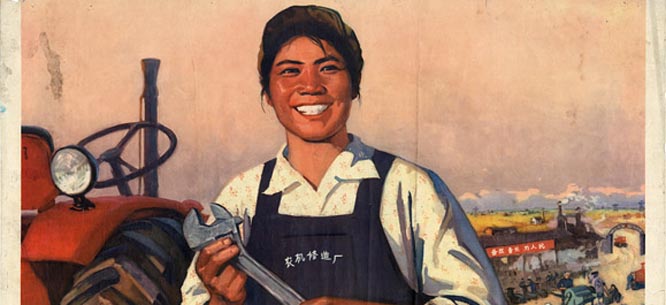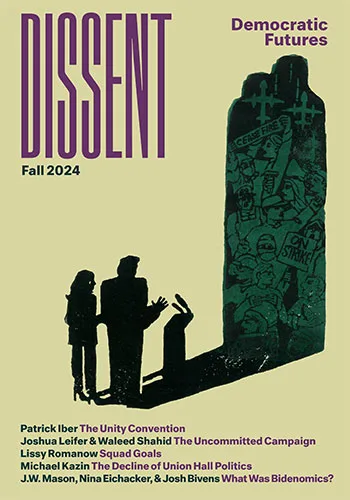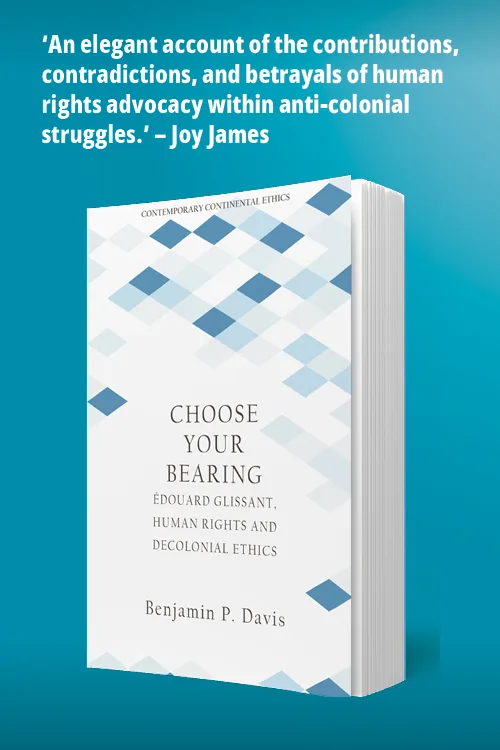Women’s Rights at Risk
Women’s Rights at Risk
A combination of factors in recent years has contributed to a fall in the status and material well-being of Chinese women relative to men.

On the face of it, Wu Mei (not her real name) represents the modern Chinese woman who has achieved spectacular success. Just thirty-one years old, she makes around one million RMB (roughly $150,000) a year as an attorney in Beijing, a salary that likely places her in the top 1 percent income bracket in China. Slender and beautiful, she could be the perfect cover model for a magazine feature on “China’s richest women.” Yet, as she speaks, a darker picture emerges. Wu recently managed to obtain a divorce from her abusive husband after five years of marriage, but only by giving up her home, her life savings, and most of her belongings.
“I cried every day on my drive home from work. I just wanted to escape,” says Wu, her eyes welling with tears as she recalls the violence of her married life. Her situation reflects a paradox for many educated young women in the new China.
For all its failings, the Mao era (1949–1976) was a time when overcoming traditional forms of male-female inequality was proclaimed as an important revolutionary goal. Now, there are signs that women’s past gains are being eroded. A combination of factors in recent years—skyrocketing home prices, a resurgence of traditional gender norms, a state media campaign pressuring educated young women to marry, and legal setbacks—has contributed to a fall in the status and material well-being of Chinese women relative to men.
Wu Mei divorced around the same time that China’s Supreme People’s Court issued a stark new interpretation of the country’s Marriage Law, reversing a cornerstone of the Communist Revolution. The Marriage Law of 1950 granted women rights to property (among other rights) and over the years, subsequent revisions of the law strengthened the notion of common marital property. Yet the Chinese government’s latest amendment of the Marriage Law in 2011 specifies that, unless legally contested, marital property essentially belongs to the person who owns the home and whose name is on the property deed.
And in China today, that person is usually a man.
A 2012 Horizon Research and ifeng.com survey of thousands of home buyers in Beijing, Shanghai, Guangzhou, and Shenzhen found that over 80 percent of marital homes are owned or co-owned by men, while only 30 percent of marital home deeds include the woman’s name. These figures already demonstrate an alarming disparity between property ownership by men versus women, but my research suggests that the inequality is even more extreme when considering the number of homes owned solely by men.
Defenders argue that the new interpretation of the Marriage Law is “gender-neutral.” Local feminist nongovernmental organizations (NGOs), however, have criticized it as a severe setback for women’s property rights. Li Ying, head of the Yuanzhong Gender Development Center in Beijing, writes that the interpretation issued by the Court “violates the Marriage Law’s basic principle of common marital property.”
It may be years before we begin to understand the magnitude of this stunning reversal of women’s property rights in China. Even some of the most privileged and successful women, such as Wu Mei, are hurt by the change. Wu’s top university scores secured her admission to a prestigious law school abroad. Shortly after she graduated and returned to Beijing at age twenty-five, she married an acquaintance deemed “suitable” by her family. “Most of my friends in Beijing had already married then because it was the thing to do,” she says. Did she love him? Wu shrugs her shoulders and says, “I didn’t find a better match at the time.”
Although Wu and her parents had invested hundreds of thousands of RMB in her one-million-RMB marital home, the property deed was in the husband’s name alone, as is customary. Wu is a litigator deeply familiar with the flaws in China’s legal system and believed that a divorce lawsuit with an unyielding adversary would be lengthy and traumatic, with no guarantee of success. Rather than go through the court system, she decided to cut short her misery, let her husband keep all the assets, and pay him an additional 100,000 RMB in cash in exchange for his agreement to a divorce. At the time of their divorce in 2011, their marital home—which now belongs entirely to her ex-husband—had more than tripled in value to over three million RMB. Wu refuses to marry again until she has bought a home in her own name. “If I had had a home of my own when we were married, he never would have threatened me like that,” she says.
Like Wu, many Chinese women have been shut out of arguably the largest accumulation of real estate wealth in history, worth over $17 trillion in 2010, according to the bank HSBC. To make matters worse, studies find that when battered women have insecure property rights, they are more likely to remain trapped in abusive relationships. Wu, with her high income, was able to buy her way out of a violent marriage. Other abused women have no such luck. The government has stalled on enacting targeted legislation to curb domestic violence, despite years of lobbying by feminist NGOs. China in this regard lags behind other developing countries that have serious problems with violence against women, such as India and Bangladesh, which passed an anti-domestic-violence law in 2010. Official statistics state that one-quarter of China’s women have experienced domestic violence (though activists say the real figure is much higher). Yet it is exceedingly difficult for a woman to secure protection from a violent partner. “Judges almost never define a case as ‘domestic violence’ because the current law in China is not specific or clear enough,” says Feng Yuan, a leading activist with the Anti-Domestic Violence Network in Beijing. “As a result, the courts routinely refer to domestic violence as ‘family conflict’ instead.”
Chinese women have been shut out of arguably the largest accumulation of real estate wealth in history.
One might think that the official feminist agency, the All-China Women’s Federation, would take a stand against the attack on women’s legal rights to property. The Communist Party established the Women’s Federation to “protect women’s rights and interests.” The emancipation of women was a key goal of both the Communist Revolution, which culminated in the founding of the People’s Republic of China in 1949, and, decades before that, of the Republican Revolution that toppled the country’s last dynasty, the Qing (1644–1911). Yet not only is the Women’s Federation silent on the change to China’s Marriage Law, it has taken a leading role in a campaign to pressure urban, professional women in their late twenties to stop being so ambitious and get married. (The peculiarity of a Women’s Federation that contributes to bolstering male supremacy is matched only by the ways that the country’s official Labor Federation often serves more to control than to empower workers.)
In 2007, the Women’s Federation defined the term “leftover” women (sheng nü) as unmarried women over the age of twenty-seven, and the state media began promoting reports of a “crisis” in the increasing numbers of educated women who could not find a husband. The Chinese word “sheng” refers mainly to leftover or spoiled food, which must be discarded. When used in relation to women, the term adds to the emotional resonance of the media campaign.
In 2010, a Women’s Federation-affiliated organization, the China Marriage and Family Research Group, collaborated with the matchmaking website Baihe.com to conduct a nationwide survey of more than thirty thousand people on love and marriage. The widely recycled, official write-up of this survey uses the heading, “See What Category of ‘Leftover’ You Belong To.” It identifies the first category as single women aged twenty-five to twenty-seven years, who are called “leftover fighters,” sheng dou shi, a play on the title of a popular martial arts film. It says these women “still have the courage to fight for a partner.”
The second category is twenty-eight-to-thirty-year-old women, or “the ones who must triumph,” bi sheng ke, a play on the Chinese name for Pizza Hut. It says these women have limited opportunities for romance because their careers leave them “no time for the hunt.”
The third category is thirty-one-to-thirty-five-year-old women, “Buddha of victorious battles,” dou zhan sheng fo, a play on the name of an ancient Chinese legend, Monkey King, who persevered to attain the status of Buddha. It says these “high-level ‘leftover’ women battle to survive in the cruel workplace, but are still single.”
The final category, thirty-five and older, is called the “Great Sage Equal of Heaven” or qi tian da sheng, another Monkey King pun. It says this category of woman “has a luxury apartment, private car and a company, so why did she become a ‘leftover’ woman?”
Urban, educated women are bombarded daily with media reports about how they had better stop focusing on their careers or they will never be able to find husbands.
The irony of these categories created to denigrate single women is that China’s one-child policy, preference for sons, and widespread abortion of female fetuses have caused a surplus of men due to the severe sex-ratio imbalance, which the State Council calls “a threat to social stability.” Some economists argue that the shortage of women in China ought to give them the upper hand in the marriage market. (This argument may perhaps be true with regard to rural women, whose parents might command a large bride price for their daughter in a village with many surplus men. Then again, studies find that rural women are more likely to be raped when there are few of them.) Yet patriarchal norms are still deeply entrenched throughout Chinese society. And urban, educated women who are beginning to reject these discriminatory norms are bombarded daily with media reports about how they had better stop focusing on their careers or they will never be able to find husbands.
At the end of 2011, China’s Ministry of Civil Affairs carried out an even larger-scale survey on love and marriage—this time encompassing more than fifty thousand people. The survey write-up on the Xinhua website uses the heading, “‘Leftover Women’ Choosing Partners: No Money, No Deal—Having House is Top Priority.” It also reports the frequently regurgitated statistic that “in choosing a partner, 70 percent of women say that the man must have a house before marriage.”
Yet in more than fifty in-depth interviews I have conducted so far with urban, educated women and men, I have not found any examples of women in their late twenties or older who refused to marry a man solely because he did not own a home. (One woman whose boyfriend treated her badly told me she used the fact that he did not own a house as an excuse to avoid marrying him.) On the contrary, I have found multiple examples of women in their late twenties—and sometimes even younger—who are so worried about becoming “leftover” women that they rush into marriage with the wrong man, without protecting their economic interests.
It could be mere coincidence that all government surveys on “leftover” women and love were backed by matchmaking agencies. Or, more likely, the matchmaking industry is making a fortune from these state media reports about men needing to buy homes to find a bride and women needing to get married before they turn twenty-seven.
Meanwhile, the notion that a man must own a home to placate the woman or future mother-in-law (zhang muniang) plays a huge role in fueling consumer demand for residential real estate.
A 2012 survey (conducted by Horizon Research in collaboration with ifeng.com) of home buyers in China’s top real estate markets—Beijing, Shanghai, Shenzhen and Guangzhou—also bears this out. Victor Yuan, chairman of Horizon, says many young men believe the media hype that the zhang muniang will not let her daughter get married unless her boyfriend buys a home. “But we can see from the numbers that this is not what really happens,” said Yuan at an ifeng.com media event in October:
As soon as the daughter turns twenty-six, she enters a time of crisis. By the time the daughter turns twenty-eight, this feeling turns to fear and dread. So all you [men] have to do is put off the marriage until your girlfriend reaches age twenty-seven or twenty-eight, then your zhang muniang won’t be worried anymore [about buying a house before marriage].
Now that the campaign against “leftover” women has been so successful, China’s National Population and Family Planning Commission has rolled out the results of its 2012–13 survey on love and marriage, this time claiming that “70 percent of women aged 18–25 years crave men 10 years older.” (Curiously, the latest survey, backed by the matchmaking website Jiayuan.com, has revised its figures downward to state that 52 percent of women say a man must own a house before marriage—perhaps a sign that even the state media cannot get away with disseminating blatant untruths year after year.)
As of this writing, I have received dozens of messages on my Sina Weibo account (China’s version of Twitter) complaining about the media’s distortion of “the older man obsession.” One woman wrote that her husband told her, “‘This survey says most young girls like much older men,’ then he narrowed his eyes and said, ‘You’re too old to be my partner.’” She inserted the symbol of a person crying and wrote that, “overly confident older men can only resort to violence.”
What can be done to improve the situation of women in China? Don’t look to the government for help. It may mouth slogans about gender equality, but in six decades of Chinese Communist history, no woman has ever been appointed to the ruling Politburo Standing Committee—not even during the period when Mao was alive, when more attention was paid to combating patriarchal traditions and the original 1950 Marriage Law was implemented. And while many other developing countries are seeing improvements in women’s political representation, the proportion of women in China’s Communist Party Central Committee has fallen over the years—down to just 4.9 percent at the recent Eighteenth Party Congress.
In one indication of what is required for women to advance in Chinese politics, twenty-one female mayors and deputy mayors received “training” in Shanghai recently on flower arranging, makeup, and “creating a graceful appearance,” according to Danwei, a website based in Beijing that tracks developments in culture and politics.
The proportion of women in China’s Communist Party Central Committee has fallen over the years—down to just 4.9 percent at the recent Eighteenth Party Congress.
Despite the relentless barrage of misogynistic state media reports, gender norms are evolving in Chinese cities. I am heartened when I meet working women who have succeeded in buying a home in their own name or when parents help their daughters make a down payment on an urban apartment.
And on Sina Weibo, individual Chinese women have pushed back against the sexist nature of the “leftover” women term. One twenty-one-year-old woman in Wuhan posted this message to my account: “The sheng nü [leftover women] ideology is a rape of the hearts and minds of China’s women! China is a male chauvinist society through and through, but Chinese men are still not satisfied.” Another asked, “Can’t women have the right to choose our own way of life? Why must a woman who chooses to be single be vilified by all of society?”
The next time you see an upbeat feature on how some Chinese businesswoman has become rich and powerful because China values gender equality, consider this: individual women have achieved success in spite of living in China, not because of it.
Imagine if Wu Mei, the Beijing attorney, had not come under intense pressure to marry someone she did not love, just because she had reached the perilous age of twenty-five. Imagine if she had not agreed to register her home solely in her husband’s name, just because it was the custom. Would she have had to endure years of abuse from her husband? What if Chinese law guaranteed her rights to marital property and offered her recourse from domestic violence? In an alternate reality, the Communist Party Women’s Federation could actually advocate for women’s rights, rather than shaming single, educated women who want to advance their careers.
Might the women of China reach a point where the constant debasement and violations of their rights give rise to a sustained, political movement? It may be difficult to picture this at present. But in 1907, China’s female revolutionary Qiu Jin wrote that “equal rights for men and women are endowed by nature, how then is it that you willingly live in subordination?” A few years later, Chinese women and men fighting for greater freedoms helped bring down the Qing empire. If history is any guide, China’s leaders ignore the deepening gender inequality at their own peril.
Leta Hong Fincher is an American doctoral candidate in sociology at Tsinghua University and an award-winning former journalist.





